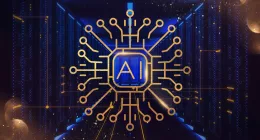The internet is flooded with massive amounts of low-resolution photographs or high-resolution ones that have been degraded to meet the needs of smartphones and other digital devices. The images have been compressed into their low-resolution versions to make them quickly accessible and shareable. If you try to zoom in on any particular detail of the photograph then you’ll be able to see nothing except — pixels.
But thanks to Google and its rapidly evolving machine learning technology, you’ll soon be able to convert low-resolution images and gain access to high-quality versions of the same. Christened ‘RAISR‘, short for Rapid and Accurate Image Super-Resolution, takes a step beyond the confines of the widely popular and most used unsampling technique of stuffing more pixels into a larger image. These techniques not only take longer to produce the final high-resolution images but are also ineffective in bringing out vivid details of the image.
RAISR with its underlying machine learning algorithms then swoops in to show what an unsampled high-quality image should look like. To make this technology work seamlessly, Google has trained the system using 10,000 low and high-resolution image pairs. The RAISR system can then be trained via two methods, where the first one is pretty direct — learn from the image pair. The second method, though more complex and lengthy, ultimately produces more accurate results.
In the second method, as seen above, the machine learning system will first apply a computationally cheap upsampler to the low-quality image and then go through the image pair database to learn filters that help recreate the details of the original image in high resolution. This method is regarded as a plus over the first one as it allows integer scale factors and better leveraging of hardware-based upsampling. It takes about an hour to train the AI system. The researchers at Google further go on to explain the technical details as well as additional aliasing artifacts that plague low-resolution images.
Google could most likely employ this technique to enable you to restore old photos from low-resolution cameras that’ll help you retain your memories in a digital form. This could also help improve the image storage technologies, where low-res versions of the image will be saved. The system will then recreate the high-quality image using the RAISR technique before showing you the original image. One could also find use for this technique in further improving pinch and zoom.






